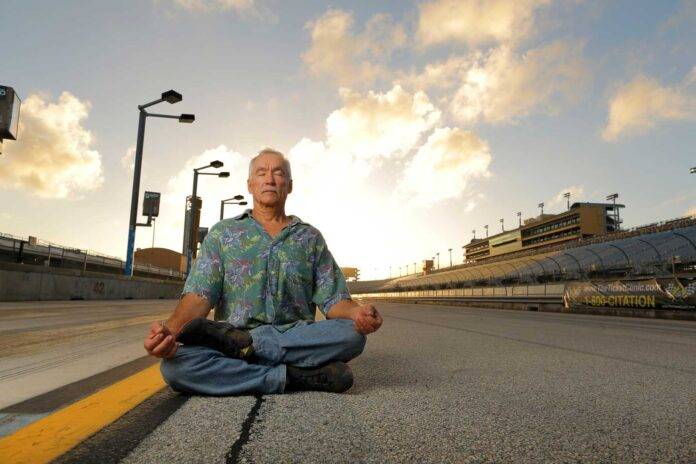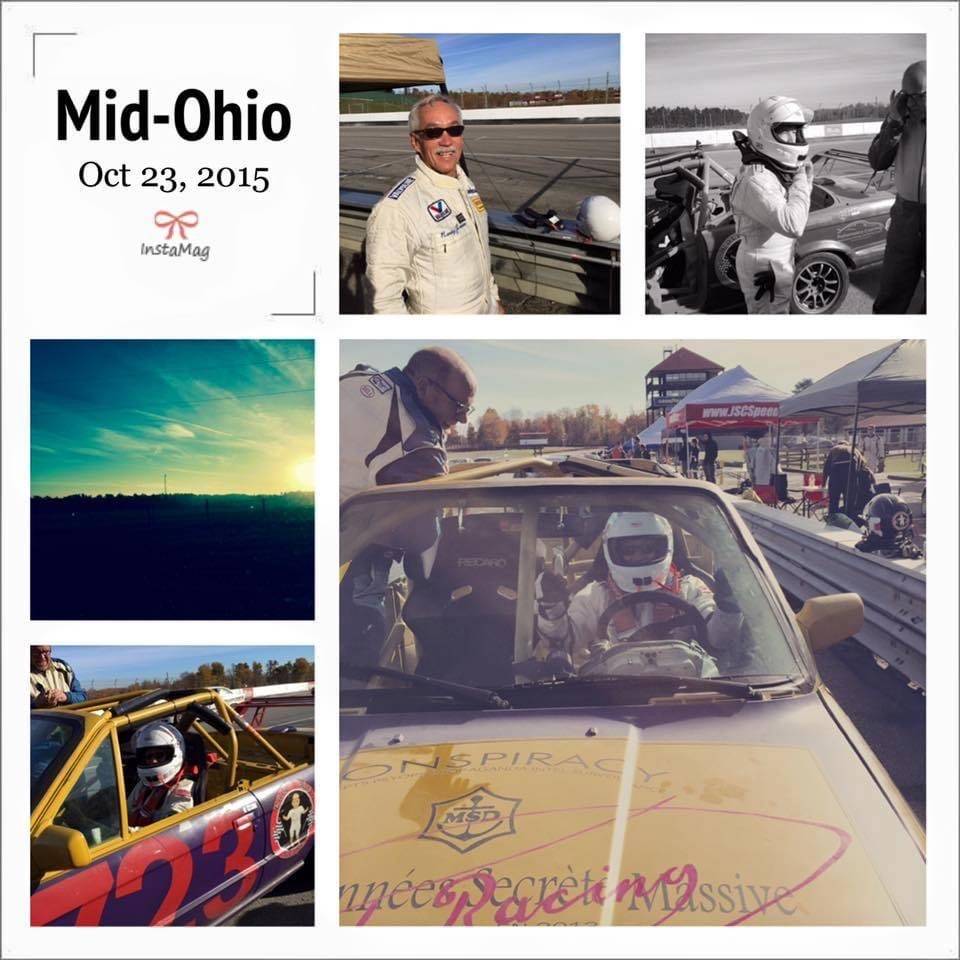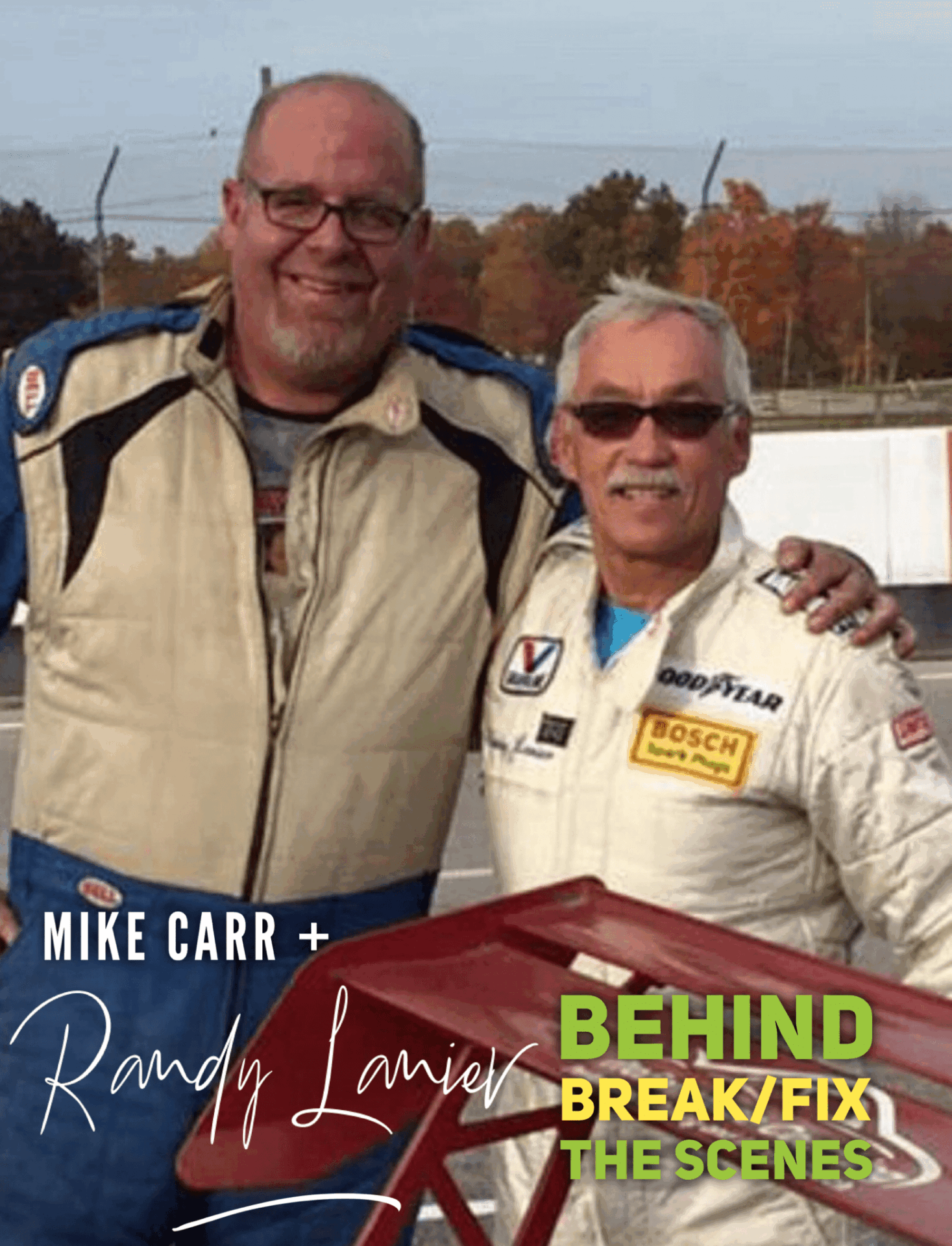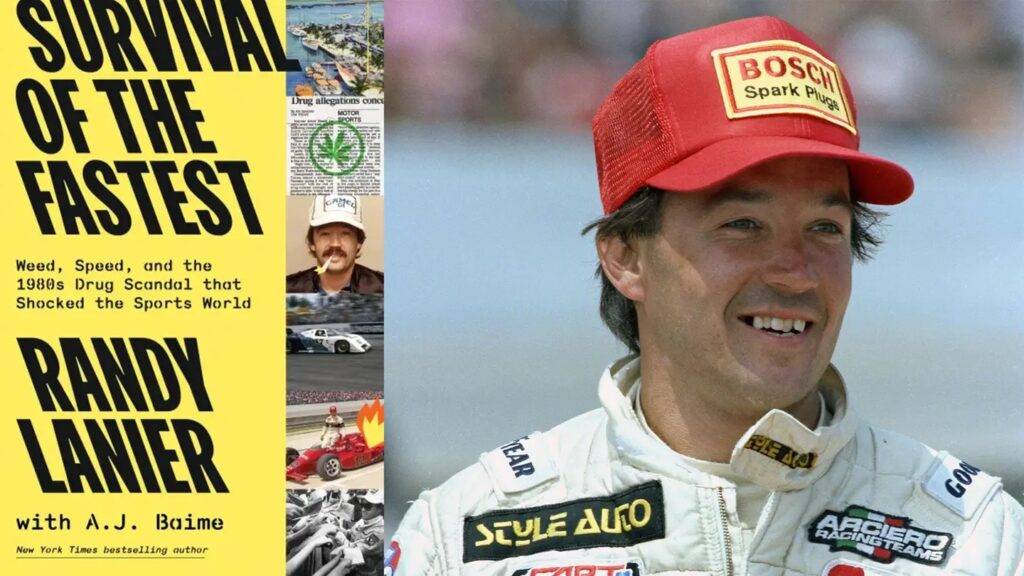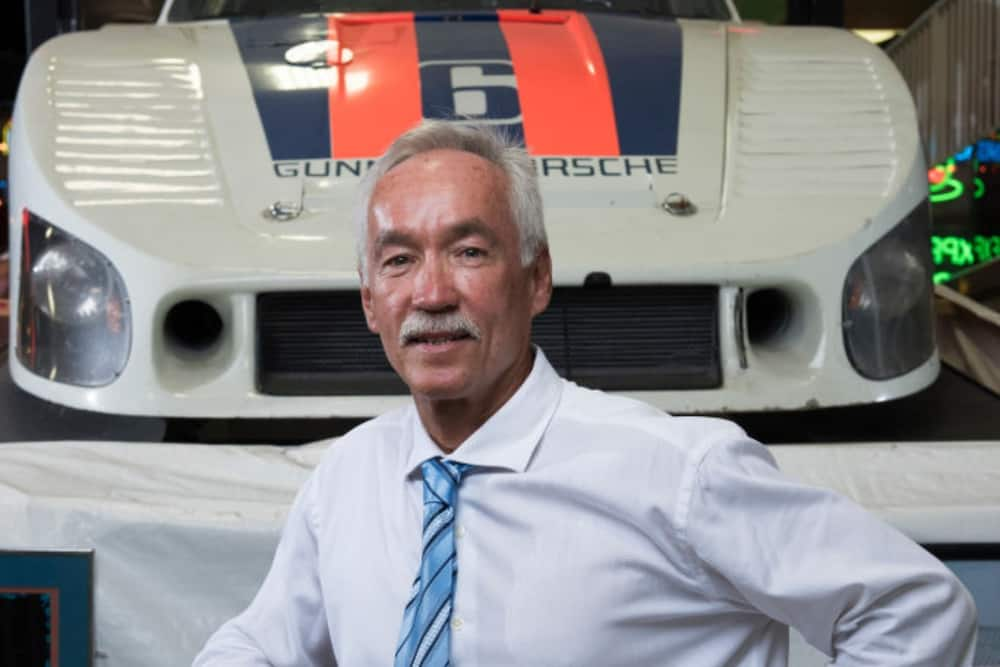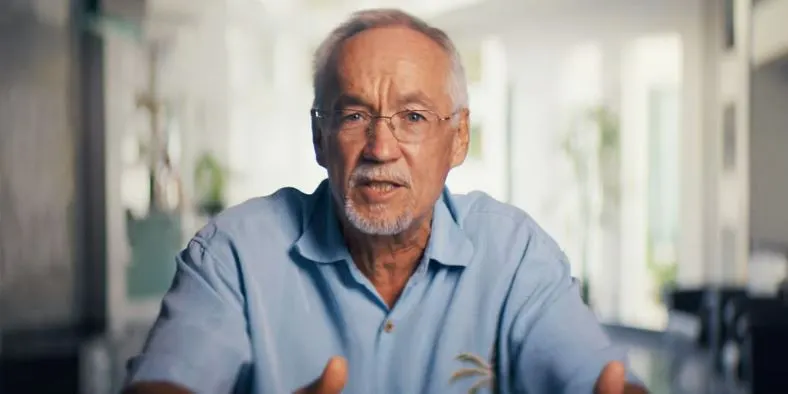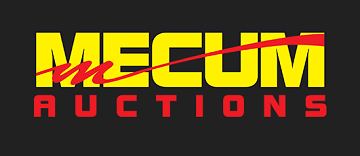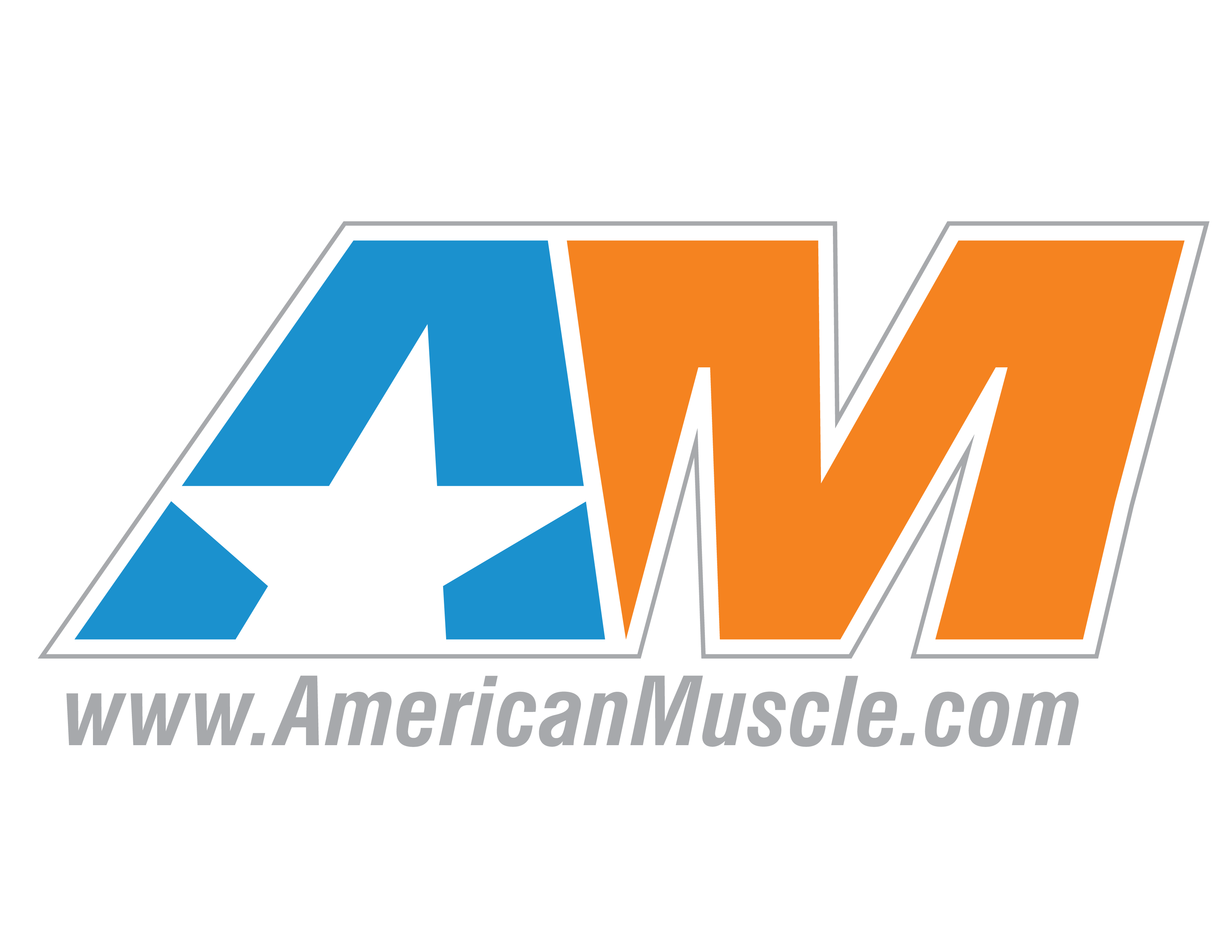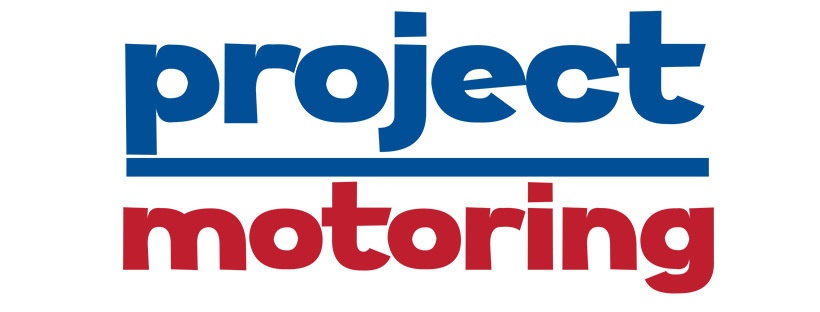“One day in 2015, I got an email from a stranger named Mike Carr, who lived in Pennsylvania. He told me he raced a BMW and that he’d read about my story in a magazine. He wanted to know if I’d team up with him for an endurance race at Mid-Ohio coming up. I stared at the words on my computer screen for a long time, wondering how to respond. My prosecuting attorney’s name was Michael Carr. So this stranger reaching out with the same name? I don’t know what to make of it. Finally, I typed the words: Is this a joke?”

Nope not a Joke.
That’s a quote from the 2022 book “Survival of the Fastest” – Weed, speed and the 1980s Drug scandal that shocked the Sports world, by Randy Lanier. Join us on this episode with Mike Carr and Randy Lanier along with special guest co-host GTM’er Tom Newman to tell the rest of this incredible story…
Spotlight
Randy Lanier - Board Member for Freedom Grow
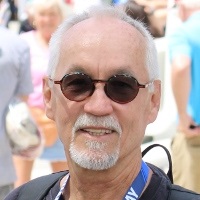
In 1987 he was sentenced to the Remaining balance of his Natural life. It took 27 years to over come this cruel and unusual punishment. in 2014 he was released. his last decade he was Blessed to have cannabis advocacy groups march and advocate for my release. One of the many purposes he feels is fulfilling is to be of service to Others. Freedom Grow’s mission aligns with his beliefs and values.

Contact: Randy Lanier at Visit Online!![]()
![]()
![]()
Notes
- Mike you’re mentioned almost at the very end of the book, and the reader is left wondering… is the man who invited Randy to the track the same “former assistant US attorney” Michael Carr? If not, what’s your connection to Randy? Take us back to 2015
- Back when you were racing, especially in IMSA, there were lots of folks that were also coming up through the ranks crossing between series like TransAm and CanAm and others. Who were some of your rivals? Who were some of your racing buddies? What was it like to race with/against Derek Dell, and Break/Fix guests like Lyn St. James.
- One thing that remains unclear is your driving ability/style. Where did you learn? Just on the backroads of southern virginia? Did you have coaching over the years? Or did you just #sendit and learn on the fly?
- For me a lot of this story starting coming together at last year’s Petit LeMans, while I was down at Road Atlanta, i remembered that the Bill & Dale Wittington at one point owned Road Atlanta, and literally across the street is “Lanier Raceway” – I never really put 2+2 together, that’s not a coincidence, right?
- In BAD SPORT they show you reuniting with Charles Podesta; do you still hang out with any of the “old crew” – what about Allan? What about Pam?
- You see sometimes in sports organizations when something like this happens, people are “stripped of their titles” – do your records, wins and championships still stand?
- What happened to the Blue Thunder, March Chevy GTP cars? Were they sold or seized? Are they in a private collection or somewhere people can see them?
- During your time away, you’ve become quite the artist. Where did that come from? Did you just pick up a brush and start?
- What’s next for Randy Lanier?
and much, much more!
Transcript
[00:00:00] Hello and welcome to the Gran Touring Motor Sports Podcast Break Fix, where we’re always fixing the break into something motor sports.
One day in 2015, I got an email from a stranger named Mike Carr, who lived in Pennsylvania. He told me he raced a BMW and that he’d read about my story in a magazine. He wanted to know if I’d team up with him for an endurance race at mid Ohio. Coming up, I stared at the words on my computer screen for a long time, wondering how to respond.
My prosecuting attorney’s name was Michael Carr. This stranger reaching out with the same name. I don’t know what to make. Finally, I typed the words, is this a joke? Nope, not a joke. That’s a quote from the 2022 book, survival of the Fastest Weed Speed and the 1980s drug Scandal that shocked the Sports World by Randy Lanier.
And with that, please join me in welcoming both Mike Carr and Randy Lanier to break fix along with special guest co-host G tmr Tom Newman, to tell [00:01:00] the rest of this incredible story. So welcome to the show, gentlemen. Thank you and, and Mike, uh, happy to, to be here with you. Uh, pretty awesome. Yeah, it’s been a fun, fun.
Yep. So normally on this show, we would start off by asking, let’s get down to the who, what, where, and when of your origin story. But in this case, we can quickly and easily fall back on both the book Survival of the Fastest, and an episode entitled The Need for Weed on Netflix’s Documentary series, bad Sport.
So let’s leave that to the side and talk about where is Randy Lanier now, starting from those last two pages of the book where our introductory quote came from. Mike, you’re mentioned almost at the very end of this book and, and the reader is left and myself included, left. Wondering, is the man who invited Randy to the track, the same former assistant, US Attorney Mike Carr?
If not, what’s your connection to Randy? I’m an attorney, but I am not a prosecutor. for, for the public defender’s [00:02:00] office for a while. I think it was 2014 Jalopnik came out with the story about Randy getting released from prison. And I knew of Randy from when I was a little kid. I’m from a town called Doylestown, Pennsylvania, which is the home of legendary racers, Bob Holbert and Al Holbert.
My family was friends with the Holbert family and we would travel to places like Watkins Glen and, you know, different tracks around the. To watch Al Drive, Randy was kicking Al’s butt in this Unsponsored blue car. You know, Al’s driving a Porsche factory 9 62 and Randy is beating him. I had heard rumors at the time.
I’m probably like maybe 14, 15 years old that there was drug money involved. John Paul Sr. And John Paul Jr. And that the lack of sponsorship might be a result. Some, you know, so we’re under the table type stuff and. I was fascinated as a teenager. I [00:03:00] didn’t really follow Randy’s story until it came back 27 years later and Randy was getting out.
Randy made a mistake in the book. That wasn’t an email that I sent him. I sent him an actual letter on paper. He was in a halfway house. I had no idea what kind of access to email he had, but at the time I was racing with Aer. Give you a little bit of background on the Rally Baby team. That enabled me to bring Randy.
We started racing lemons in 2010. None of us knew what we were doing. I’m from a family that was in the cars. You know, racing was always aspirational and it seemed like there was a high wall to get over in order to get on the track. When lemons came along, we built a car and then we built another car, and then we built another car, and then we built another car and we got a guy on the team who was a really good cage builder, which facilitated us turning into a big race team.
And in 2013, I think we were running like 40 drivers and maybe 10 or 12 cars. That enabled us [00:04:00] to win the 2013 National Championship with lemons, and then AR came along and we’re like, well, let’s jump to there. And that’s where I met Randy and I’m like, I want to take Randy to aer. And it worked out the way it did, which was pretty good.
That’s actually how Mike and I met was through the 24 hours of lemons. I was a judge, and this is not an exaggeration, but my first introduction to Mike was him groveling to get one of his cars out of the penalty box . That makes. Legal expertise, Michael . We were heavily involved with Road Track and Car and Driver and Gillick at that point, trying to get the series off the ground, and I said to the guys at Gillick, maybe I could do something with Randy.
And they’re like, yeah, you know, we’ll work it. They didn’t really do anything, so I just took it upon myself to reach out to Randy and say, Hey, do you want to come drive? We got a race coming up at mid. I told him my story about having watched him as [00:05:00] a kid. I was astonished to get a letter back. It was so great when he.
If you’re not the my car who prosecuted me, I would be happy to come drive your car. So we set it up. I, it was some work. He had a parole officer who was looking over his shoulder pretty tightly. And I don’t wanna say I made up that he was gonna be working as an instructor. I put out that there was an opportunity for people to get instruction from Randy, but I mean, to be honest, Randy hadn’t driven a car in 27 years and so I wasn’t kind of certain that he was gonna be a good instructor at that point, but I had an old BMW that, uh, we could haul out there and see what we could do, and it seemed like an opportunity that was too good to pass up.
True. Told I was right. It worked out. Marvel. Mike, I want to thank you for recharging my memory because I was at a halfway house and I do remember the, the letter now and trying to set up an email cause everybody was telling me you need to set up [00:06:00] emails and I didn’t know nothing about emails right after the letter.
I eventually got my email service. Hooked up and I think I remember emailing you, it was like a big thing for me to get on the email, so thanks Mike for setting the record straight with the letter. I imagine it was a lot like being part of the Flintstones and then dropped into the Jetsons. Yeah, it was amazing, uh, coming out and seeing all the advances with the telephones.
I was in the beepers and payphones back in the eighties, and then when I come out in 2014, everybody’s on these phones. Tells you directions and ways to go and talks back to you. That was a big change to hear phones talk to you. And with Michael, it was amazing because I was still at the halfway house and for my probation officer to agree to let me go outta state, they was giving me like 27 minutes from getting from my job to my halfway house.
They would time me. I [00:07:00] have to be from when I leave work I have to be at at the halfway house. Within 27 minutes, they had my route figured out. That close. They gave me like a few minutes of budget to get over, but they let me go. Mike, I see you’re a good attorney cause you negotiated that well, so thank you.
Do you remember I was down at the 24 hours of Daytona the year that you were still in the halfway house as a spectator and there was a big snowstorm up east. My flight got delayed cuz they didn’t want to fly out on a Monday morning to this huge snowstorm. And so I had Monday free into Tuesday and I rented the worst rental car I’ve ever rented in my entire life.
And I drove from Daytona down to Lauderdale where you were. And you’re like, stop at this place and bring me some stone crabs. I didn’t know how much stone crabs cost. I bought like a hundred dollars worth of stone crabs. And we sat with you and your daughter on that picnic bench outside the halfway house, and then kind of [00:08:00] got to know each other and ate stone crabs, which was, you know, a really good experience.
I’d never had ’em before. And you looked at me and you go, what time’s your flight? Right. Daytona, you gotta get in the car. . I didn’t wanna stop talking. Oh, I remember now. And didn’t you missed your flight? I didn’t miss my flight. That here’s what happened. I had time to either stop to pee or stop to get gas, and I needed gas, but I really needed to pee a whole lot worse.
I didn’t get gas, and I drove that rental car up to the entrance to the airport, and I was sitting in a red light and it ran outta gas . I couldn’t get into the airport, but I had all kinds of cab numbers in my phone, and so I called a cab and they’re all right there at the airport. This cop pulls up and he’s like, I’d give you a ride, but look, I’m here on a motorcycle.
A cab shows up, runs me the quarter mile into the. And I’m sweating and I’m trying to get on the plane and I know I’m gonna miss the plane. I don’t miss the plane. I get on the [00:09:00] plane and I’m with this girl and the flight attendants know that I’m like stressed. They hand me a bottle of water and a paper towel to like wipe the sweat off my head,
And I’m on the plane. So I’m happy. And this German, who was driving at Daytona the day before is sitting behind me and he’s speaking German and he says in German, look at that. He about missed the flight and I turned around and I go, I con, I kin Deutsche . I let him know that I spoke German and he quit making fun of me and I made it home.
But yeah. What happened to the rental car? I threw the keys over the counter and I said, your car’s out there by the entrance to the airport. And I never heard another word. Oh my boy. Yeah. Wow. They didn’t charge my credit card. It was outta gas. I don’t know what they did. I never heard about it. It was great
It was totally worth it though. Like to go have lunch with you and Stone crabs are one of my favorites now. Yeah. Yeah. Stone Crabs are delicious. [00:10:00] You know, here we are. All right, we’re gonna make this happen. And friends of mine tow the car out on the trailer. I get you at the Columbus airport, and now we’ve gotta drive up to mid Ohio.
We get there, we go to the hotel and it’s late October, so it’s dark out there in the morning, and we get up in the pitch black at like 6 30, 7 o’clock in the morning. Get to the track. And I have no idea what to expect at all. The road and track guys are there and they’re like, you’ve got Randy Lanier.
There’s a driver’s meeting, and I say at the driver’s meeting on Friday, practice day, I’ve got Randy Lanier here. If anybody would like him to hop in their car, have at it. But you and I get in the car. Was that the rainy day or was that the race day was Rain Mike. The race day was rainy like the. Stay was pretty good.
Yeah. And I don’t remember whether I drove first or you drove first. I might have driven first so that you could see how crappy a driver I [00:11:00] am and you know, try to help me. You might have driven first so that I could see whether or not you still knew how to drive. Either way, it doesn’t matter. But we took turns and.
we’re doing good. It was really fun. And you started hitting your marks. We get into the weekend and the car and driver guys say, we want him too , and they get you in their car, and so you’re in my car for hours. And then you’re like, I want lunch. You hop outta my car. And they’re like, can you get in our car?
And you do. And I’m like, you’re just driving all day. This is a good time and you’re doing well. I’m doing better because of your help, because you say, here’s a wall where you need to get really close to this wall because you’re gonna come around to the second to last turn and then the last turn. You want to be positioned properly and it’s slippery over there.
and I’m feeling really good. I think maybe this was the second time I’d been there and I felt so much better after we spent some time in the car together and I [00:12:00] valued the experience that you gave me. It wasn’t bs. I mean, it was real good instruction. I know that you were having a flashback. The garage is there.
Yeah. Haven’t changed in 35. They’re exactly the same plywood. You know those overhangs that you can look down into them, and you were there with your EMSA car and you rolled in with my, you know, crappy low budget race car. It seemed like you were having the time of your life. I don’t know. I, I’m, I’m guessing that’s the case.
You find yourself 2015 behind the wheel of that bmw. and what were you thinking when you strapped in, popped the clutch and took off out the pit exit? Was it all coming back in a flash or ? Well, it didn’t come back in a flash. It took a few laps. The first time I got in the car, we was having a blast.
Michael and I, I gotta tell you, I, I love that track. The camaraderie that we was all sharing with everybody from Road Track Magazine, gilo. Allow me to drive there BMW and [00:13:00] then hopping it back into yours. But after the race was over, we ended up at a bar KC Prime. Fantastic place. It was an amazing night. I rented a karaoke machine,
Oh man. And uh, and we ended up having the time of our life. It was a crew there. I mean, the bar was packed. It was just such a big celebration. I’m out with my freedom. We’re doing karaoke with smugglers, blues, , , 10 lawyers, guns and Money, 10 Williams Guns and Money, and just all of us singing and having the big, I mean, it was just a, a huge party and, and so much laughter and fun that.
We didn’t want it to end. What do you think of the cars of today, or especially since you’ve been out compared to when you left, and maybe more specifically the race cars? Were you able to keep up when you were on the inside? I watched some races, read a lot of magazines that I could get my hands on.
[00:14:00] Watching it on TV was difficult. I became a nascar. I’m not such a NASCAR fan. Now, concerning the Chase Point system, I’m not a real big fan of the way that’s structured with the Chase system. The cause that I was instructing and has so much track assistance, if you use the, those settings kind of takes a little bit away from it because of the ability of the car to correct itself is quite amazing.
And, but then also if you use that, you can’t really stand. Because it doesn’t let you stand on it too much. I’d rather drive without the track assistant. But these cars are completely, have changed so much with all the, a anti-lock breakings, the track assist and stuff with the technology of these cars these days, it’s.
It’s got world of difference. So Randy, I gotta ask you, because in reading the book, one of the things that remained unclear, I mean the adventures that transpired in the book are amazing, and as it bounced between what was going on [00:15:00] behind the scenes and what was going on track, what I was left wondering was where did your driving ability and style come from?
Did it come from growing up on the back roads of Southern Virginia or did you have coaching over the years? Because it sent, it seemed to me like you just got there and you sent it every time there was. No, I didn’t drive in Virginia. I built little push go-karts when I was a kid. These are go-karts without motors,
We didn’t have the motors, so we just put skates on plywood and push each other around and stuff. So, uh, my family’s from a little town called Danville. No Danville. Well, I was born in Lynch. Oh, well, there you go. So where I was going with this is growing up as a kid, did you ever have an opportunity to visit Virginia International Raceway v r?
No, I, I did visit a track called Summit Raceway. Summit Point. Summit Point, that’s in my backyard. I went there to drive some formula Fords. But I was just curious growing up in [00:16:00] southwest Virginia like that, cuz for a long time v i r was kinda like the best kept secret in motorsports, you know? Yeah. Paul Newman called it the Paradise on Earth.
And I was just curious if you ever had a chance to, to race or if you’d ever be interested in driving that track. I would love to drive that track. I haven’t never driven it. Uh, the only track in Virginia I drove was, uh, summit Point. And Summit Point is actually in West by God, Virginia. Oh, it’s in West Virginia.
Okay. It was just barely 1980 when I went to that. So were you racing with Tom Cruise and Paul Newman? At that time I was just starting out with S C C A racing and Paul Newman was driving in S C C A. Very cool. But I think the, the driving came from, early on I had gotten a little 3 56 Porsche and did some S C C A events here in Florida.
But my biggest thing came back. I went to Rhode Atlanta in 1979, or I met Doc. and he was a coach at Road Atlanta. [00:17:00] I was there for one day and I ended up spending a day with him going around Road Atlanta. Then I went back the next day and spent a day on a skid pad. And the skid pad was really helpful.
Learning car control. We would put oil and water on it and just go out and do. Kind of circles and keeping that wheel on the circles inside wheel, outside wheel until you can learn to, uh, shift gears while you’re doing these 360 s. And so I think that helped along with Doc Bundy, uh, giving me some tips.
And so basically a lot of seat Tom. So it’s funny, you’re the second person to mention Doc Bundy on this show, and so I gotta ask you this question. Back when you were racing, especially in imsa, there’s lots of folks that were coming up through the ranks. Crossing between series like Canam and Trans Am and IMSA and so other, and otherwise in bad sport.
They talked about your rivalry between Blue Thunder and Porsche with Derek Bell and all that, but there’s another Floridian [00:18:00] driver that was about the same time you were around. And that’s Lynn St. James. And she also mentioned Doc Bunia on the episode we did with her. So I’m wondering, did you cross paths with Lynn?
Did you guys race together back. We didn’t race together. I, I, I got to know Lynn. We was friends in emsa. Uh, she was doing some racing with Ford and stuff. So got to know Lynn and she was quite good. It was amazing how fast she was and just a quality person. So enjoyed her company at the races and her, and Deborah, Greg too was, uh, quite fun to to chat.
So who were some of your rivals outside of Derek Bell and the Porsche team? Did you have any? Yeah, I, I looked at every team as a potential rival, but with John Paul Jr. And John Paul Senior. Junior was fast and senior was too, but Junior was just smoother and just a great, great guy to be around on a racetrack.
I trusted him. Of course, Al Holbert was super fast along with [00:19:00] Derrick Bell, but then we also had cloth. Luke Wigg. He was like a gun slinger. He was just fast and anything he got. Klos Lugwi was just super fast. And Ford did a good thing when they hired him for the probe car because, uh, they searched for the best driver they could locate, and they came up with Kloss Lugwi.
Uh, Bob Wallock was another one. He was super fast and he was, uh, cantankerous to me sometimes. We kind of didn’t see eye to eye when I first met him driving with a, on a BB five 12 Ferrari at Daytona. He thought I took the car off the course and I didn’t. The gearbox let go and I happened to be the one in the car when it let go, but it was a lot of good drivers in emser and, and one of my favorite cars was the 9 35.
That car was just such raw. Horsepower, no car assist like they do with these days. So you really, you just, you drove the shit outta it. the car had a reputation of being impossible to control. Yeah. It was [00:20:00] badass. And I, that’s my, one of my favorite cars to drive, you know, and it’s funny, the people that you’re talking about, I mean, you’re really talking about the heyday.
Of sports, car racing. I mean, some of the best names were coming up during that time. We talked about Lynn, you talked about John Paul’s Junior and senior and others, and it’s just, I mean, the, the list goes on. Let’s not leave out, uh, Huck and Hurley Haywood and Willie was just, and he’s still out there doing it to this day.
Yeah. I love the, the series that he’s in. Another question that comes up as a result of this, and it, it’s sort of a big question mark in the book too, and, and it wasn’t really even covered in bad sport, is, What happened to Blue Thunder? And for those that don’t know what Blue Thunder is, that’s the March Chevy G T P car that you guys campaigned back in the days of the prototype IMSA series and whatnot.
Were they sold? Were they seized? Are they in a private collection somewhere in a museum where people can actually see Blue Thunder? Where, where are they now? I unfortunately know too much about this. When Randy and [00:21:00] I became friends, I tracked these cars. And I know who owns them. I know whether they’ve been for sale.
They are private, they are in existence. What were the numbers? 56 and 57? Yep. They may be available. If anybody wants to get in touch with me, I will happily take a finder’s fee. I suggested to Randy that we should try to somehow mount an effort to get them, but. Hundreds and hundreds of thousands of dollars and they’re out there.
Yeah. So to answer your question, the cars got seized along with the indie cars that I had. They had seized a warehouse where I had a collection of my cars here in Fort Lauderdale. The cars got auctioned off. Uh, US marshals on F b I auctioned off the cars and private owners ended up buying them for little of nothing and all the spare parts.
Right. I love that part in the book where you’re like, I didn’t just buy, I bought 10 of everything . Yeah. I’d buy 10 motors and hundreds of thousand dollars [00:22:00] of, of gears and whatever body pods we need. We had extras, but all that stuff got seized in a seizure of a warehouse. I had all my car collection.
There’s a rumor out there that Randy used to fly weed into Road Atlanta, and Randy, you tell the story, but from what I understand, that never happened. I don’t think you ever used airplanes, but he did fly motors and cars into the back stretch at Road Atlanta. If I remember correctly, the road Atlanta was it.
There’s a lot of rumors that Bill and Don and I used to do plane loads and stuff, but I know nothing about that as far as that. I did buy the track from Bill in 1985. He was being under investigation and we knew he was getting ind. And Bill and Dawn Winnington owned the track at the time and we found a way for them to get up underneath the track so they didn’t get seized, and I kind of became a [00:23:00] silent partner with a couple of other gentlemen who was my front people and bought the track and ended up losing that.
Once I got a life sentence, , the track kind of went another way. That’s now by nascar. Now it’s owned by nascar. The only good thing that come out of that deal was my brother was a manager for about 30 years. To all the owners that went through the track, even for nascar, he worked for there until he passed away a few years ago with cancer.
And it’s funny you guys bring up Rhode Atlanta because for me it didn’t sort of all come together until last year when I was at the Petite Lamonts and I’d been Rhode Atlanta before. It was because I parked. At Lanier Raceway and walked over to the track and I was like, that can’t be a coincidence.
Right? It, it actually, I think it is. It’s Lanier County or something. . No, I don’t have nothing to do with the track next door. I always thought, well, I’d buy that property. When I bought Road in Atlanta, it was 750 acres I [00:24:00] purchased along with the race track. I always wanted to get the land next door too, but didn’t get around to doing it.
Ended up going to prison before . So Randy, I’m curious, where were you working? What were you doing when you got out? So when I got out, my good friend Preston Hen, who’s a another race car driver who had quite success in the series Daytona and lot of races at day one with AJ Ford, Bob Wallet, that was some of his drivers.
Nine 30 fives and nine 60 twos. He gave me an opportunity, he owns what they call the swap shop here in Fort Lauderdale, and it’s a big flea market with a huge mall in the middle of this 88 acre property. So when I first got out, I went there and I was helping with the tickets for parking. Did that for several months until he made me a manager and worked there for about a.
And then after that I became an Uber driver and drove Uber [00:25:00] for close to two years. That had to be exciting . I, I always thought these Uber passengers have no idea who was driving them around. with the Uber driving done, then I started getting some opportunities to instruct with a company here called pdg Performance Driving Group in a Corbett school.
So I started driving Corbetts and instruct. Private lessons and instructions, uh, at Homestead Daytona and Seabra. Instructed for p DG for a couple of years and did a couple of S E C A races here in Florida in, uh, Mazda Rx seven, four races. With that, after a couple years of that, I got a job and a substance abuse.
Center teaching instructions of how to meditate and do yoga, and it’s amazing how things can come about with what we put out there. We get back, I got a job teaching meditation at [00:26:00] sunrise on the beach. Amazing that I got this job getting paid to watch the sunrise come up, teaching a lot of Afghanistan veteran.
How to meditate and do yoga. These are people that are coming back from the Afghanistan war and or had been to Iraq previously and was dealing with some social issues with substance abuse. And so it was like a great time for me because mentoring a lot of these men that had went through a lot of.
Hardships and struggles into Afghanistan in Iraq. I found myself at the beach being a mentor to these men and women and that helped me a lot too. Coming out from 27 years of maximum security penitentiary, I did that for close to five years. Something that I’ve, uh, I’ve been interested in and, you know, following you on Instagram and that sort of thing is where did you learn how to.
In the joint. I picked up the paintbrush. I was a big runner running about 50 to 75 miles every week, and [00:27:00] I ended up losing all my cartilage and my right hip, and it took me about seven years to get a. Hip replacement, and it got to a point to where I could only walk about five or 10 minutes and I couldn’t walk any further.
I had to stop. So I decided to go to the art room and take up oil painting. That way I could just get a seat with a canvas in front of me and I wouldn’t have to walk. I could just sit down and paint. So I went. To the art room and started painting and picked it up in the joint. Just self-taught in the art room in, uh, Coleman, Florida.
Now, I’m, I love art. It was a, you know, and I, and I use that as an example. No matter the struggles, hardships, no matter what it is in, there’s something. that you can get out of it. And 27 years in maximum security prisons really developed me a lot of understanding about compassion because my last nine years I.
Was a [00:28:00] suicide volunteer for people who tried to commit suicide, and I would sit with them for four hours a day. When I read the book, the thing that struck me the most, and I texted you about this, was how hard that had to have been to sit with those guys and how much prison staff was grateful that somebody with Experie.
And being in the joint, how valuable that was for them to have you there. And it moved me beyond words, tears. I mean, you tell a harrowing story that I’m not gonna get into. That had to have been one of the hardest things that you’ve ever done. And you’re doing it in a place where you’re resentful that you’re there.
But you’re making the most of it. Is that a work behind you that you did, or is that someone else’s? No, this isn’t something that I’d done behind me. Um, that isn’t a piece of artwork from Eugene Gerwin, which is a Russian immigrant. That piece right there I purchased in 1984. It’s [00:29:00] a piece with a tugboat.
You can’t see it, but there’s a tugboat going underneath the Golden Gate. The year I bought this painting, I had just brought a, a large load into San Francisco underneath the Golden Gate Bridge with a tugboat,
I found that painting in a art gallery in Carmel, California. I love the stuff that you do, that’s for sure. Thank you. Thank you. So another sort of, where are they now? Question in bad sport. There’s several scenes where they interviewed Pam. She’s quoted as saying, he asked me to marry him, but I’m still thinking about it.
So what about the relationship between you and Pam? So we just got married last November on the beach. Oh, congratulations. Yeah. So we’re coming up on a one year anniversary very. Last November the seventh, we got married on Fort Lauderdale Beach. The kids brandy and your son, do they race? Are they at all interested in cars?
No. My daughter lives in Colorado. She just got married last year. She married a [00:30:00] cultivator, operational manager of a cultivation in Colorado. The company has one dispensary. It’s in Aspen, Colorado. They had just recently bought some property up near a Telluride, and my son here lives in Fort Lauderdale and he doesn’t race.
But here’s the crazy part, right before I was getting indicted, Pam was pregnant with twins and we lost one of the twins, premature death, and my son was born without his brother. But I come out in 2014 and his girlfriend gets pregnant right after I come outta prison and she has twins. So now I’m a grandpa of two twins.
They’ll be seven year old, October the 13th. I come out on October the 15th of 2014. And these boys are born October of 2015. Pretty amazing. Now, that day I will put in go-karts. . Absolutely. Yeah. Randy, when [00:31:00] they went to your parents’ houses and they said, what do you have here? That was Randy’s and your mom’s like, oh, just this old grandfather’s club.
Then they open it and it’s full of money. Do I get that? Well, it was my aunt. They went to my aunt’s house in Virginia and they said they was investigating me, that their nephew, have I left any money or anything over there in storage? And they said, well, the only thing he brought over here was them antiques in the garage.
So they said, mom, if we look at ’em, so they go in there and. They started looking in the antique furniture, the couches, the clocks and stuff, and started finding money that my dad had hidden for me into antiques. And the story of your parents and your family members getting in trouble is the most poignant thing.
You didn’t ever intend to hurt anybody else. So they also show you reuniting with Charles pod. Do you still hang out with him or any of the old crew? What about Alan? Alan was here at the house [00:32:00] yesterday. We had dinner. He was supposed to make it over for the football game, but we had dinner last night, so I, I still see Alan regularly.
He’s my buddy from my childhood. We go way back. We’re still friends, Chuck. I don’t see him. I text and emailed them, but we had dinner after I’d gotten outta prison and that was right along the time I was making a Netflix show. Alan came to mid Ohio. Back when I put Randy behind the wheel and a couple other good old friends, I forgot.
Yeah. And it was so great to meet him. And then it’s been so great to see him in the Netflix show and to be friends with him on Facebook. And he is a character every bit of what you see on that Netflix show where he defies convention and defies Randy’s peace, love, . You know, like, let’s all get along kind of message.
Is Alan, and Alan is just the greatest and very, very funny. When I see this stuff, I wish that [00:33:00] I’d been there, like I don’t want to get in trouble with these guys back in the eighties, but I wish that I’d been there and I wish that I’d knew them. The fact that marijuana became legal makes this all seems so ridiculous.
Wow. The work that they had to put into supplying a plant to people who wanted to. I, I, I get it. It it’s more profitable if it’s against the law, but the people who did it were colorful and they weren’t violent. And guys like Alan just restore your faith in humanity like he and a big giant doberman.
Guarding a safe house seems like one of the more interesting things that you could possibly. Think of, it’s quite amazing that the war on drugs is still going on. We still have tens of thousands of people incarcerated for this plant. What’s amazing is I was involved three years before I, I got out, I got involved with a nonprofit organization called Freedom Grow, and they was helping [00:34:00] support me and giving me letters.
Encouragement and hope that, you know, maybe I’ll, we’ll get out. Having people in your corner means a lot to you when you’re incarcerated. And now I find myself as vice president of this nonprofit and we help all the non-violent prisoners or cannabis prisoners and do a lot of things with them. Freedom Grow sends them commissary funding.
We send them birthday gifts every birthday with their mothers or their fathers, and we do books and magazine subscriptions. So it’s a wonderful thing to be able to give back to the people that are still incarcerated. Since then, I’ve. Been able to release a documentary show called Need for Weed on Bad Sports.
Dropped a book on August the second called Survival of the Fastest, which by the way, I, I just sold for a full feature film. Oh. So was blessed. Oh, right. Yeah. That was just like amazing how things come about. So, Ink that Gill a few months ago. So the book [00:35:00] will become a full feature film. So tell me something though in the casting.
Is it gonna be one of the walbergs? Because I tell you what, looking at that photo of you from back in the day on the cover of the book, I could see Marky Mark playing you in the movie. What do we think? Yeah, we haven’t got that far. We just, the studio just hired a, a screenplay writer. Pretty big deal with that.
Cause they did that within about four months of doing the negotiations. We’re on board with that. We’re getting the screenplay written right now, but something that really is bigger than that is last March, March 28th, to be exact, the state of New Jersey awarded me a cultivation license to grow marijuana, and it’s huge.
It’s a cultivation license that allows me to cultivate 75,000 square feet of can. If I realize my full footprint, about 40,000 pounds a year, and this is something that they refer to as reciprocate Justice. Someone who did [00:36:00] too much time for a plant deserves a shot. At one of these licenses, they awarded me what’s called a social equity.
Cultivation license, they award that to people That’s been impacted by the war on drugs. I happen to fit that criteria. I applied for the license about a year and a half ago and received it in March, and I’m in the process now of trying to bring on investors and with all that, the complexities that that requires, it’s a huge lift for me.
To do. This is super expensive. So since you’re building this farm, cultivating license, all this kind of stuff, are you gonna grow? Punta Roja, your number one, your favorite as it’s outlined in the book
Yes. I will bring several strains to the market that’s gonna be pretty unique. Already been talking about the strains that we’re gonna bring, and not gonna be hard to. [00:37:00] It’s so amazing that the government locks you up. And I spent 27 years in maximum security penitentiaries, and then they come out and they say, well, we’re sorry, but here’s a license.
You can grow it now. . You want it? It’s bizarre. This is the easiest marketing campaign that you could possibly ever envision. The guy who brought, well, what he was convicted of, bringing in 300,000 pounds of Colombian weed can. Whatever he’s growing with the stamp of authority. It’s like the Queen’s weed , you know,
There better be a race car on the logo. Yeah. I’m bringing a strain called Octane Cannabis. Better be a blue thunder in there too, right? I got a blue thunder that I’m tr uh, I’m trying to unveil Blue Thunder in Las Vegas at the MJ biz this November. A brand called Blue Thunder. I’m getting it done. I just got a resolution passed in the town of Eatontown, New Jersey, [00:38:00] and that’s huge right there to have a resolution pass to be the one of two cultivators in this township.
And this is kind of local to my area, so I’m doing whatever I can to help Randy. Yes. You know, find the realtors and the professionals and the lawyers and the folks who he needs up this way to, uh, get this done. There’s something else that I wondered about. You said you lost road Atlanta when you got put away, the cars got taken away, sold at auction.
Just your whole life sort of just disappeared, melted away in, into the darkness. You see it more now than maybe years ago, but a lot of. Organizations and sanctioning bodies. When something like this happens, people are stripped of their titles. Do your records, do your wins and your championships still stand, or were they taken away from you as well?
No, they, they still stand on. I just recently went, last, my first Indianapolis 500, I went back to a legends day. It was such a blast. Got to sign all day [00:39:00] autographs. No legends day. They still have the rookie of the year trophy in the museum, so all the record still stands and the weed didn’t have nothing to do other than financing the race cars.
We talked about 2015 timeframe, getting back behind the wheel of a car. Doing some work for some driving organizations and coaching. Here you are seven years later, 68 years old. Are you still racing, planning to race? Are you still behind the wheel of a car? No, I, I, I haven’t been racing. Covid kind of put a, I was instructing regularly, getting booked quite often, but then Covid came about in 2020.
That kind of put a damper on the racetracks. They closed that down there, they’re back open. But I did just get invited to Road and Track Magazine just invited me to, or a rally in the Hudson Valley. It’s a three day event with 25 invited cars, and we drive from upstate New York to La Rock, Connecticut where we’ll do hot laps on October the 18th, 19th and [00:40:00] 20th.
I have no affiliation with this event, but it is a very, very fancy, beautiful event with great hotels and great. Yeah, a great conclusion at Limerock and I do have an affiliation with Extreme Experience, which does similar sort of stuff, driving supercars on public roads, which , that must be the most frustrating experience in the world, unless you’re okay with getting arrested and paying fines and being very rich and the road and track event.
Sounds like a fantastic event. Yeah, I’m looking forward. What if things had turned out differently and you’d ended up winning the 500, what was your plan? What were you gonna do next? My whole deal that I wanted to do was win the Indianapolis 500. I went there was rookie of the year, finished 10th, and then on my following next oval, I just knew that I was going back to wind Indy five.
I was at Michigan 500. I cut a tire and ended up hitting the [00:41:00] wall and that kind of ended the deal for me because I got indicted several months later. Is that where you broke your leg? Yeah, that’s where I had a compound fracture to the right fem of bone. Mario had crashed and I picked up some debris from his crash had I won the Indy 500.
Later on, I probably went back to get a second win. . . So I, I have a feeling that you would’ve kept at it until you won it sort of deal. You know, a lot of us, we have those goals and then we’ve reached the goal. You’re standing at the summit of the mountain and you go, well, now what do I do? Right? Do you go for a Formula One?
Do you go into touring car? I guess maybe you weren’t thinking that far ahead. I had my eyes set on Pike’s Peak. I had already started doing some planning for Pike’s Peak. Didn’t get to fulfill that. Got cut short with that. So my career in racing was really short. I accomplished everything I did in a short time, but there was some Pike’s Peak that I did want to do and wanted to race Indy.
Of all the tracks that you [00:42:00] ran during your seasons, were there some that you loved and some that you hated? There was none that I hated, but there was some tracks that I liked a little bit more than others. Really loved. Laguna Sacre was good at Laguna Sacre. Loved Watkins Glen, a fast track. I, when I was driving there, they had just reopened it from being shut down in 1984 by, I won that season.
The last race of the. There was no slow turns at Watkins Glen to me, that was like, wow, this track is balls out because there’s really no slow turns. And that’s where I saw him. That’s where I came to know who Randy Lanier was. 1984 at Watkins Glen. Love that track. So, bucket list events or tracks that you’d still like to drive or go to?
Any track? , . You know, I still love going to watch the races. I, I go to sea ring in Daytona. Occasionally make it down to to homestead. There’s some new track in New Jersey [00:43:00] that I haven’t been to. I’d like to go drive. I’ve heard about, and I think there’s one in Kentucky that I’m hearing good things about.
Ncm, national Corvette Museum. Yeah. Yeah. It’s a lot of work to do this stuff and to do it on a budget. I, I don’t wish that I was selling 15 million worth of weed a year to do this, but on the other hand, I kind of wish I was, cuz 15 million worth of weed would buy me a lot of track time. . Yeah, unlimited . I think that it would be fun to hear Randy’s story all the way to the bottom.
I, I read the book. Randy has been incredibly open with stories when you’re sitting at the bar after the race, you know, he did his time. He deserves to be able to tell his stories without fear of anything else coming back to haunt him. And the stories are unbelievable, Mike, and, and I really sincere when I tell [00:44:00] you in.
Struggles are hardships that we all go through. If you really look for it, you’ll find some positivity, some positive stuff in it, and that comes about with, my mother used to tell me that greatest form of knowledge is empathy. And I come to understand that. Now, I didn’t understand that when I was growing up, but I understand it now and the lowest form of knowledge is opinions.
everybody’s got an opinion. You don’t have to have a fact to back it up. They got at least two, like they got two elbows.
I know that the cars have changed in 30 plus years, you know, from when you were racing to now, but the advice you could give aspiring drivers, you know, people that are coming up through the ranks that are in S E C A and NASA and other organizations that want to go pro. What are some of the lessons you learned on that part of your journey that you could pass on to them and say, Hey, this is what you [00:45:00] gotta.
Do all the hand eye coordinations you can do. I used to play racquetball a lot. That was my sport. I loved it so much that I built the racquetball court at my house in Colorado. If you wanna become a really good race car driver, you live, eat, sleep. Drink tall and love it. Every day because then you become that.
And from my perspective, there’s kind of a parallel, the brutality that goes along with, with motorsports, right? You know, the, the violence that takes place in the car, the, the pressures that your body undergoes. And a lot of people who haven’t done that just don’t understand the stress that your body undergoes in of itself.
It’s an art. And I imagine when you sit in front of a canvas and you have a plan, much like you have a plan in, in your head, How you’re going to attack this next corner or make a pass, whatever the case may be. It’s kind of a similar thought process in terms of how do I make this brutality into art? Or how do I make this blank slate into [00:46:00] some form of art?
You know how it’s like art too? Is focus developing the skills to really put your focus. On the task at hand really means a lot because the higher the focus you can take, the higher concentration you can have, the better off you are with your laptops. So you see the people that are constantly running up front are constantly qualifying good.
They have the skills to concentrate at a high level with the art. No matter where you are. If you are really focusing and concentrating on the art, on what you’re putting on the canvas, you can be. In a prison sale or the South of France at the moment, you’re in this canvas and it’s an amazing thing that it can take you away.
All other things. That sort of leads me to an overarching thought that I’ve had ever since I met you seven years ago, whatever it was. You’ve got this massive drug dealing [00:47:00] operation and you’ve got this massive racing operation. Reading the book gave me insight. I don’t have the ability to fathom how you’ve got millions of dollars worth of drugs out there on the sea or on the land, and people who are moving it for you.
And whether you trust people and whether you know people well enough to understand that they’re not going to sell you. And now you’ve got this race in front of you and you’re going to go drive and your focus has to be on this, and then as soon as you’re done, it has to be on that. And I have the most immense amount of respect.
It seems like it would require someone to being on the spectrum, you know, in order to divert the two. I don’t know how you did it, and I would love to understand. He’s like a drummer. He just splits his brain, right? He’s doing . Yeah. Yeah. It boils down to where we put our energy and where we put our [00:48:00] attention, our energy follow.
So if you really develop the skills, and when I say skills of driving race cars, to me, everybody says, oh, you got talent and stuff, but. , you’ve gotta develop it. You’ve gotta sit there, get your seat time. But it also having the capability and the capacity to really focus, really concentrate. Meditation is an awesome thing.
It is an amazing tool that we have, and we all have many gifts within us. And when I say that, I say it sincerely. We have gifts that is amazing. Just for example, we all have the gift. Be able to be the observer of our own thoughts and emotions, but a lot of times we can go through that day and never once step back and be the observer of what it is that we are thinking or feeling.
We’re on autopilot. It’s really easy to be on autopilot when you’re working eight to four, eight to five, or whatever you’re doing. So going through your day and developing the skills to [00:49:00] live a mindful. To really be aware. Take a few moments, several times during the day and step back and be the observer.
Be the witness of what it is you are thinking, what you’re feeling, because that will help you develop the skills of mindfulness. So when you’re in a car, and you’re really battling it out and figuring out how to get around someone or the place to make a past. You’ll do it with ease and not so much forcing it to happen.
So Art does that really focusing on what it is that you want to develop this piece into. I feel like I need to take up painting to make my driving better now. Yay, . When I became friends with Randy and offered him this drive, I didn’t know what I was gonna get out of it. I didn’t really have a whole lot of motivation to get anything out of it.
I just said, all right, you know, guy seems like he needs to get behind a wheel. [00:50:00] Yay. The stuff that he’s talking about has educated me so much like I am so. For his experience. That sort of mindfulness has sunk in. And I’m looking at the source and I’m looking at his experience. I read his book, you know, but we spent hours talking and I’m so grateful for all that.
It’s just been a wonderful relationship. And Mike, I wanna tell you, I’m, I’m so glad that you mentioned gratitude, gratefulness, because I’m gonna tell you, and this is for real, living a life of gratitude. Is an amazing thing because you get away from living a life of lacking and it brings about abundance.
in all areas. It’s amazing what the gratitude, what you just mentioned does for you because it does away with sense of lacking and it brings about abundance. So thank you stuff. And you know, the parallels sounds as much like a recipe for becoming a a world-class driver [00:51:00] as much as it is a recipe for a life well lived.
The parallels that I see. , particularly at the amateur levels, you’re talking about gratitude. I can’t tell you the number of times that fellow competitors cars have broken or they’ve had an issue or something like that, where another team has jumped in to get them back on track. And I think that’s something that really makes the racing community.
Very special for someone like yourself who’s competed at the highest levels to give back. I’m very grateful for you sharing your stories and your wisdom. Oh, thank you. I enjoyed it. The stories are fucking awesome. , tell us how you really feel. So what’s next in the Mike and Randy chapter of the book?
Where are you guys off to next? What’s your next big race together? We’re getting old. I have cataract surgery coming up when I can see. I’ll let you know. , , and that’s a handy bit of information to have. Yeah. . [00:52:00] No, but it, it’s, it’s actually great because you guys are sitting here talking again as friends. You developed this relationship over almost a decade now, and you can see that you guys have been doing other stuff behind the scenes and not just all about race cars and whatnot.
Even, even though as Brandy said, we need to eat, sleep, drink, breathe, race cars all the time, if that’s what we’re into. But it’s good to see this friendship has blossomed out. If something as simple as. Original letter that you sent, Randy, so that’s, that’s pretty amazing too. Well, we, we went through some stuff.
I’ll let Randy decide whether or not to tell you, but life throws stuff at you all the time. And when he was early out of prison and I was down there visiting him and it was a different time, it was a different life. A lot of stuff has passed over the dam. He and I. Maintain this wonderful relationship where we talk, I don’t know what, once a week, once every couple weeks, and we’re trying to do some business with the marijuana business up here, and I’m glad that he looks to me [00:53:00] as a trusted resource.
I think that it’s wonderful to watch this movie and a book and the Netflix show, like, I’ll take off. I, I just couldn’t be happier. Randy and Mike, any shout outs, promotions, or anything else you’d like to share that we haven’t covered thus? Mike, I’m coming up to the New Jersey on the 10th, 11th and 12th.
I’m a speaker at the Edison New Jersey Convention Center. It’s a investor cannabis convention. Try to make a point to hook up with you. Good. Well, I can’t end without just saying rally baby for life. The race team that brought him back on track, not selling anything. Right on. I have a nonprofit called Freedom grow.org.
We support cannabis prisoners nonviolent. We have 178 of them. If you haven’t heard of us, check us out. Freedom grow.org. None of us take a salary. We do it all through volunteer efforts on our own time, and we [00:54:00] support these non-violent cannabis prisoners and their families. We do holiday gifting. I’ll give you an example.
Last holiday was Easter that we had the funds. We do it all through donations. We made up 126 Easter baskets and we put little water bottles that sit. These are for the children. The 188 Cannabis prisons had 126 children, so we made 126 Easter baskets and we put little water bottles that said, you are strong, you are brave, and you are smart.
We put little Rubik’s cubes, we put activity. We put all the candy and the Easter bunnies and the chocolates, and we sent ’em to the hundred 26 children. We do that all through donations, so please check us out. Freedom grow.org. After 27 years of being in prison, Randy Laier returned to the world of motorsports and weed, and after that faithful weekend in 2015, Mike Carr got in touch with Randy to let him know that he had edited Randy’s Wikipedia page.
Now, there’s no longer the [00:55:00] word former. Before Race Car Driver. And to quote Randy, that feels really good. To learn more about Randy and his story, be sure to check out the August 22 release of the best selling book, survival of the Fastest available on Amazon Imprint and on Audible. And if you don’t have time to read, then watch the Netflix documentary series, bad Sport, specifically episode two entitled The Need for Weed, which brings you up to speed on Brandy’s story in his own words.
And if you wanna follow. Be sure to check out www.freedomgrow.org or follow him on social at Randy Lanier 27 on Instagram and at Randy Lanier on Facebook and LinkedIn. And in the spirit of gratitude, I, I sincerely say I can’t thank you enough for coming on our show and talking about what’s happened over the last seven, almost eight years that you’ve been out.
All the things that have transpired. Relating information back to drivers as to you know, where we can take [00:56:00] ourselves next. Thank you. It’s been a good ride here with you guys and I appreciate you. Very grateful for having me on your show. Yeah, thank you so much. This was really fun. Yeah, thanks for including me, Eric.
Thank you, Eric. It was enjoyable. Michael. Always a pleasure indeed. And Tom, nice to meet you. Nice to meet you too, Randy, and hopefully you’ll drive one of my cars one day. Right on. I’m Hey, hit me up in time. Don’t soft pedal that offer. His cars have horsepower unlike mine. Ooh. His Mustang had 550 horsepower and it was so much fun to just drive around people.
Oh, damn, man. All right. The car I’m building now is a 1992 Corvette. Oh, nice man. Sweet. Sweet. So it’ll be a good time. I should have that ready for the first part of the year. Next year. Well hit me up if you haven’t got a seat available. Oh, I, that’s hammered in stone now. . Right on. I think there’s always a seat available for Randy.
You’re just gonna kick somebody off. Absolutely. . All right [00:57:00] guys. Thanks Randy. Thank you all. Thank you so much. This was fun. Thank you, Mike. All right. Take care.
If you like what you’ve heard and want to learn more about gtm, be sure to check us out on www.gt motorsports.org. You can also find us on Instagram at Grand Tour Motorsports. Also, if you want to get involved or have suggestions for future. You can call or text us at (202) 630-1770 or send us an email at crew chief gt motorsports.org.
We’d love to hear from you. Hey everybody, crew Chief Eric here. We really hope you enjoyed this episode of Break Fix, and we wanted to remind you that G T M remains a no annual fees organization, and our goal is to continue to bring you quality episodes like this one at no charge. As a loyal listener, please consider subscribing to our Patreon for bonus and behind the scenes content, extra goodies and GTM swag.
[00:58:00] For as little as $2 and 50 cents a month, you can keep our developers, writers, editors, casters, and other volunteers fed on their strict diet of fig Newton’s, gummy bears, and monster. Consider signing up for Patreon today at www.patreon.com/gt motorsports. And remember, without fans, supporters, and members like you, none of this would be possib.
Learn More
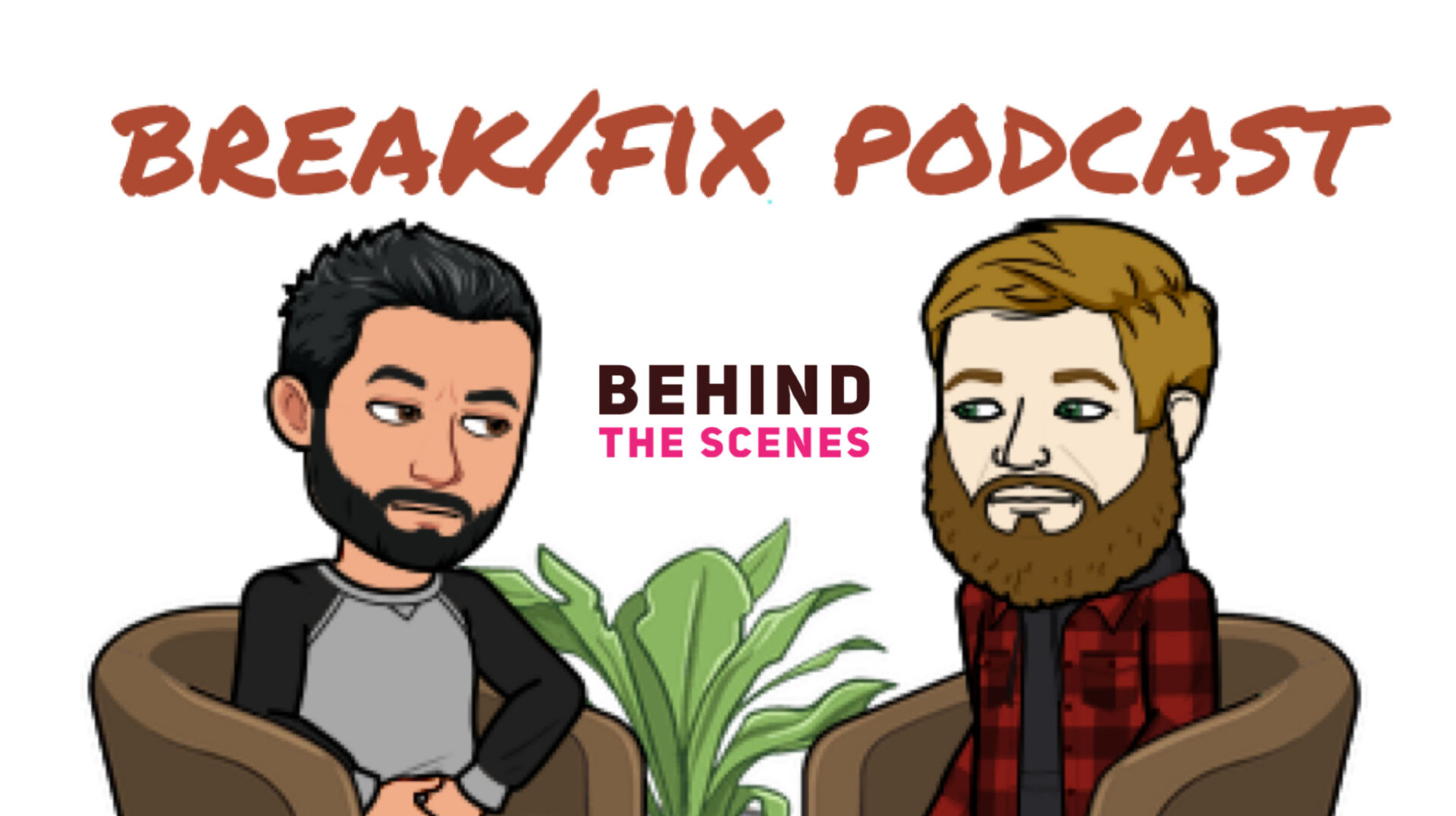
Consider becoming a GTM Patreon Supporter and get behind the scenes content and schwag!
Do you like what you've seen, heard and read? - Don't forget, GTM is fueled by volunteers and remains a no-annual-fee organization, but we still need help to pay to keep the lights on... For as little as $2.50/month you can help us keep the momentum going so we can continue to record, write, edit and broadcast your favorite content. Support GTM today! or make a One Time Donation.
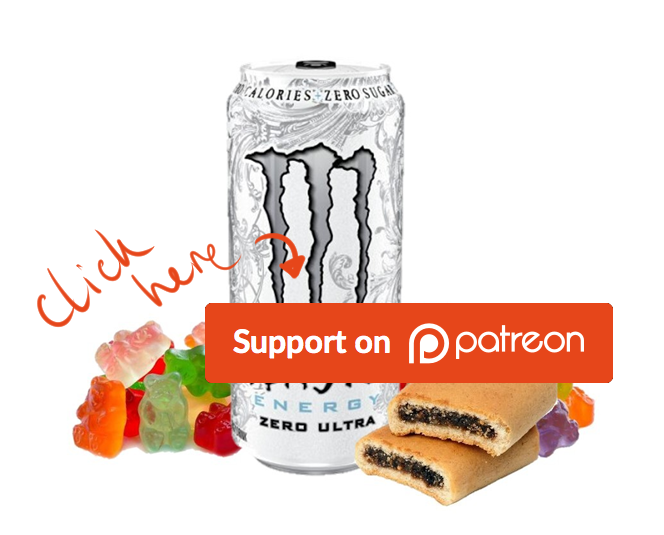
If you enjoyed this episode, please go to Apple Podcasts and leave us a review. That would help us beat the algorithms and help spread the enthusiasm to others by way of Break/Fix and GTM. Subscribe to Break/Fix using your favorite Podcast App:
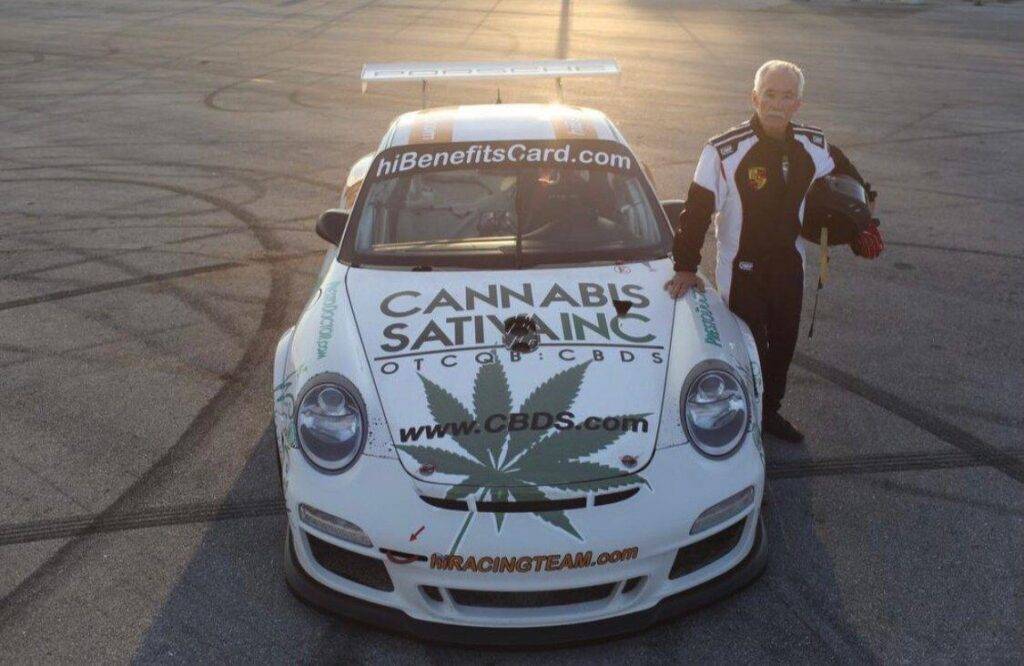
After 27 years of being in prison, Randy Lanier returned to the world of Motorsports and Weed. And after that fateful weekend in 2015, Mike Carr got in touch with Randy to let him know that he had edited Randy’s Wikipedia page. Now there’s no longer the word former before race-car driver. And to quote Randy, “That really feels good.”
To learn more about Randy and his story, be sure to check out the August 2022, release of the best-selling book “Survival of the Fastest” available on Amazon in-print and on Audible. Don’t have time to read, then the Netflix documentary series BAD SPORT, specifically episode 2 entitled “The Need for Weed” brings you up to speed on Randy’s story in his own words. If you want to follow Randy, be sure to check out www.freedomgrow.org and follow him on social @randylanier27 on Instagram and @randylanier on FB and LinkedIn.
More to this story… check out the BTS on Patreon!
Racer/Weed Dealer Randy Lanier Recounts His Wild Ride in ‘Survival of the Fastest’
FreedomGrow.org
FREEDOM GROW is an all-volunteer non-profit 501c3 organization. We help cannabis prisoners regain freedom while we support their sacrifices through “The Wish Program.”
The Wish Program helps prisoners with commissary money, books, magazines, family outreach, and public education.
BAD SPORT – Netflix
True crime and sports intersect in a docuseries that examines global controversies and scandals with firsthand accounts from those involved.
Six stories at the intersection of sports and crime, as told by the athletes, coaches and law enforcement officials at the center of the controversies. Check out EPISODE #2 of BAD SPORT called “The Need for Weed” and hear Randy’s story in his own words.


